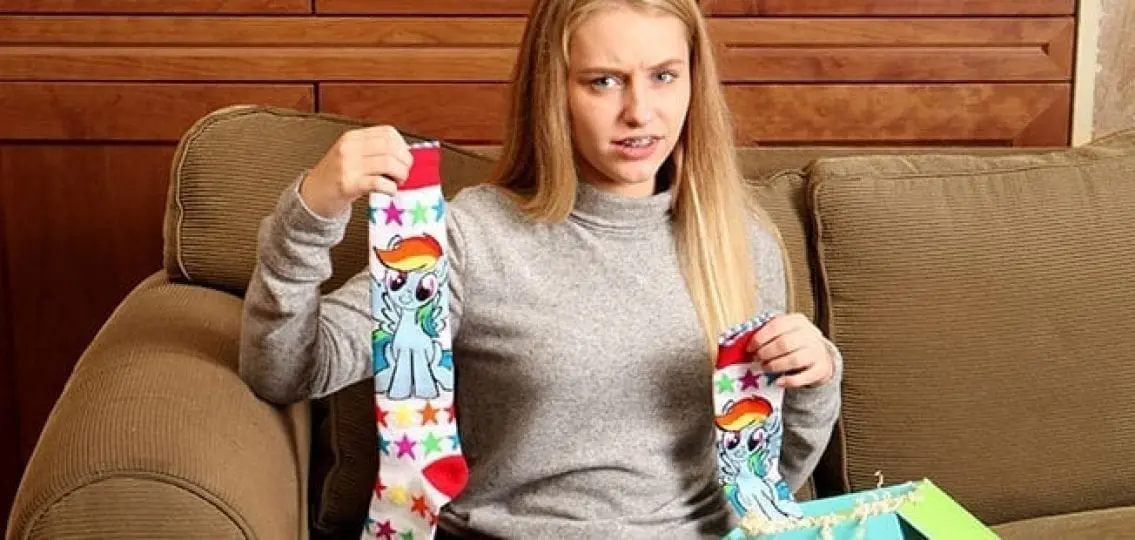You were sure that you picked the perfect gift, but your teenager didn’t agree and holiday disappointment creeps in. Sadly, you couldn’t afford the gift that your teenager really wanted. Or you didn’t have time … or you forgot. More likely, Grandma missed the mark (by a long shot).
While one of our expectations for the holidays is that our teenagers should be grateful for whatever they receive, the fact is that adolescents don’t always handle disappointing gifts with grace.

Did your teen’s Christmas gift disappoint them? Are they unhappy with their Hanukah haul? Have the holidays not lived up to expectations?
We asked some of our favorite experts for advice on how to handle the inevitable disappointed teen.
How to Deal with Holiday Disappointment:
1. Don’t lose your cool.
The first step would be to listen completely and hold off on reacting, as we often let our reactions guide our responses. Validate their concerns, praise their ability to communicate their feelings, and offer solutions and positive ways of looking at it. For example, you could say something like, “I’m sorry you’re disappointed that you didn’t get an iPhone. The good news is that you got a new computer and can do lots of cool things on it that you’d do with a smartphone anyway.”
Dr. Mandy Silverman is a psychologist with the Child Mind Institute.
2. Take solace in knowing that this is normal.
It helps to be sympathetic with a disappointed feeling whether you think it’s valid or not. Kids this age are uncalibrated, and that’s totally normal, so their responses will be uncalibrated, and that’s totally normal. When your child is in the midst of a feeling is not the time to bring your talk about values, about caring for others, about being thankful. That comes after he or she calms down and regains balance. So reference my response to question one, and maybe that will help you keep your cool!
Deborah Paris, LCSW, works frequently with adolescents and their parents.
3. Validate and empathize.
It doesn’t usually help to try to talk teenagers out of their hard feelings. When it comes to emotions, psychologists tend to go by the rule that “the only way out is through.” We can help our teenagers toward the path to feeling better by validating or empathizing with their disappointment. Teenagers (and people of all other ages) can usually find their way to feeling better once they feel that their concerns have been heard and taken seriously.
Dr. Lisa Damour is a psychologist and author of Untangled: Guiding Girls Through the 7 Transitions Into Adulthood.
4. Give them space.
The best response to disappointment is to just listen. We often want to ease the pain our teens feel, but that impedes them from developing their own ways of coping and building resilience. A good suggestion: offer your teen space to talk about their disappointment and assure them that you will only offer your advice if asked.
Mercedes Samudio, LCSW, is a parent coach based in Huntington Beach, CA.





